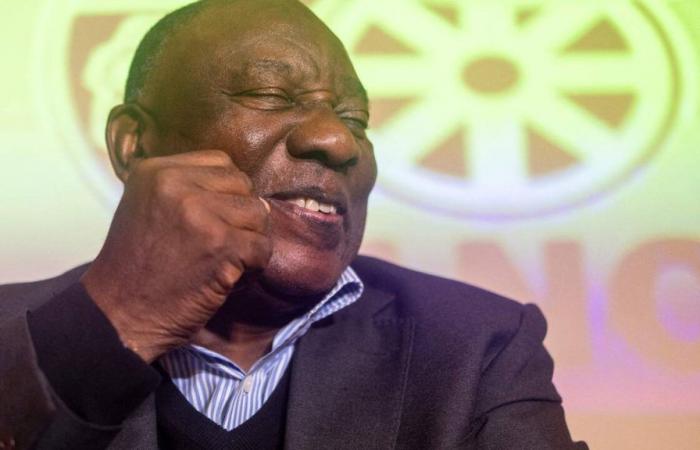Towards a second term for Ramaphosa
The agreement should allow the reappointment of President Cyril Ramaphosa for a second term during Friday’s parliamentary session in Cape Town.
According to Fikile Mbalula, the coalition includes the center-right Democratic Alliance (DA), the Zulu nationalist Inkatha Party (IFP), the small center-left United Democratic Movement and the FF Plus, a white identity party.
The radical left-wing Economic Freedom Fighters (EFF) were excluded from the deal due to a lack of agreement during discussions with their leader Julius Malema, Fikile Mbalula said.
Former President Jacob Zuma’s party, uMkhonto weSizwe (MK), which came third in the elections, is also not involved. According to Fikile Mbalula, discussions will continue with this training. But the MK, which announced its intention to file a legal appeal, contests the validity of the results of the legislative elections and denounces irregularities. Its 58 MPs plan to boycott the inaugural session of Parliament.
“Imperialism” and “backwardness”
Since the advent of post-apartheid democracy 30 years ago, the African National Congress, ANC, Nelson Mandela’s historic party, held an absolute majority and elected a president from its ranks. But the former liberation movement, weakened by corruption and poor economic results, saw its support collapse during the May 29 elections, which gave it only 40% of the vote, or 159 seats out of 400.
In South Africa, the president is chosen from among MPs in a secret ballot of the National Assembly. He must then choose the ministers who will form the executive in Pretoria
The ANC invited “everyone to participate” in the government, underlined Fikile Mbalula. But bringing together the points of view between the DA, led by whites and favorable to the market economy, with 87 MPs, and the EFF, which has 39 seats and campaigns to nationalize land and businesses, proved to be a challenge.
At a press conference on Thursday, former ANC youth leader Julius Malema said his party was not opposed to a broad coalition and would have voted for the ANC presidential candidate if the presidency or vice-presidency of the Assembly had been granted to him. But he denounced the alliance with the DA and the FF plus. “It represents imperialism, racism and white supremacy, backwardness,” he lambasted.
A millionaire businessman
Former trade unionist turned millionaire businessman, Cyril Ramaphosa, 71, rose to power in 2018 after Jacob Zuma was ousted from power amid corruption charges. Once described by Nelson Mandela as one of the most gifted leaders of his generation, he played a key role in the negotiations that ended apartheid in the early 1990s. Promising a new era for South Africa , it has, according to its detractors, disappointed expectations, notably with unemployment at its highest.
The shift to the center negotiated as part of the coalition agreement could further damage his popularity, particularly in the ranks of the ANC, with its left-leaning progressive DNA. During the negotiations, the prospect of an alliance with the DA fueled divisions and discontent among party officials. According to observers, ANC MPs could vote against Mr. Ramaphosa on Friday, covered by the secrecy of the vote.






